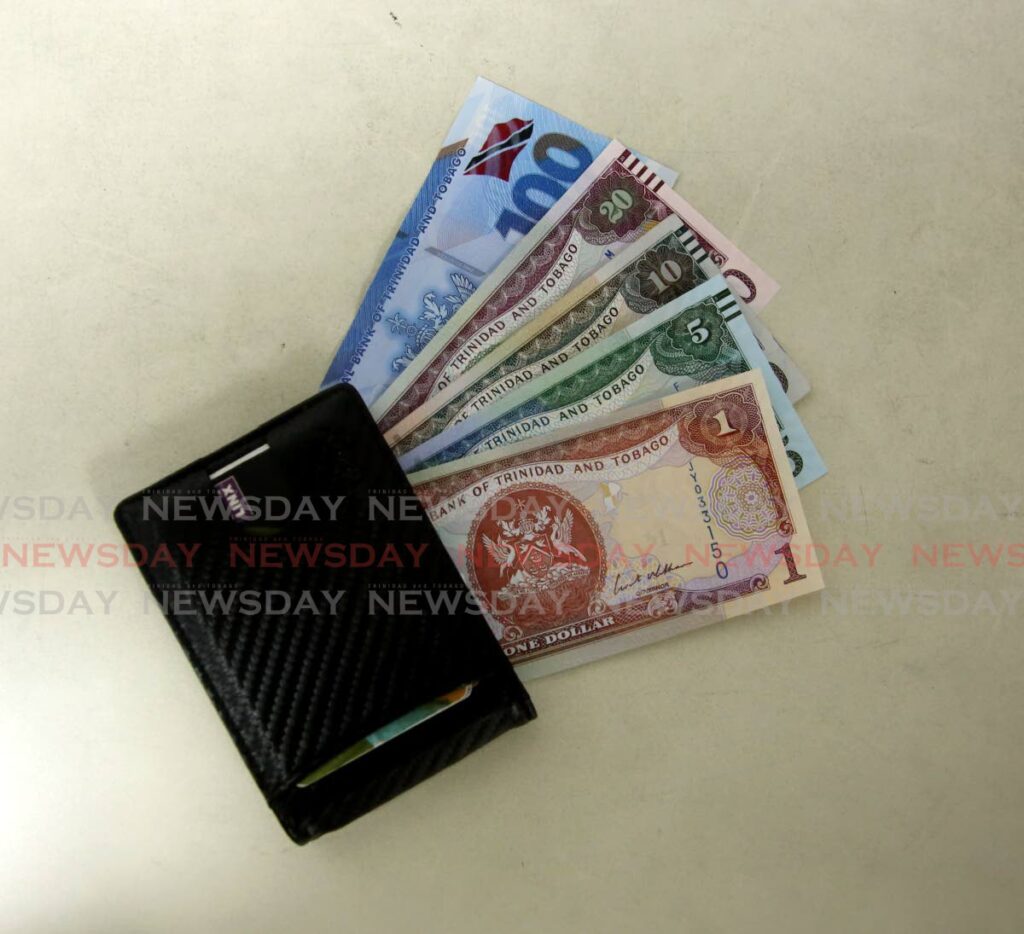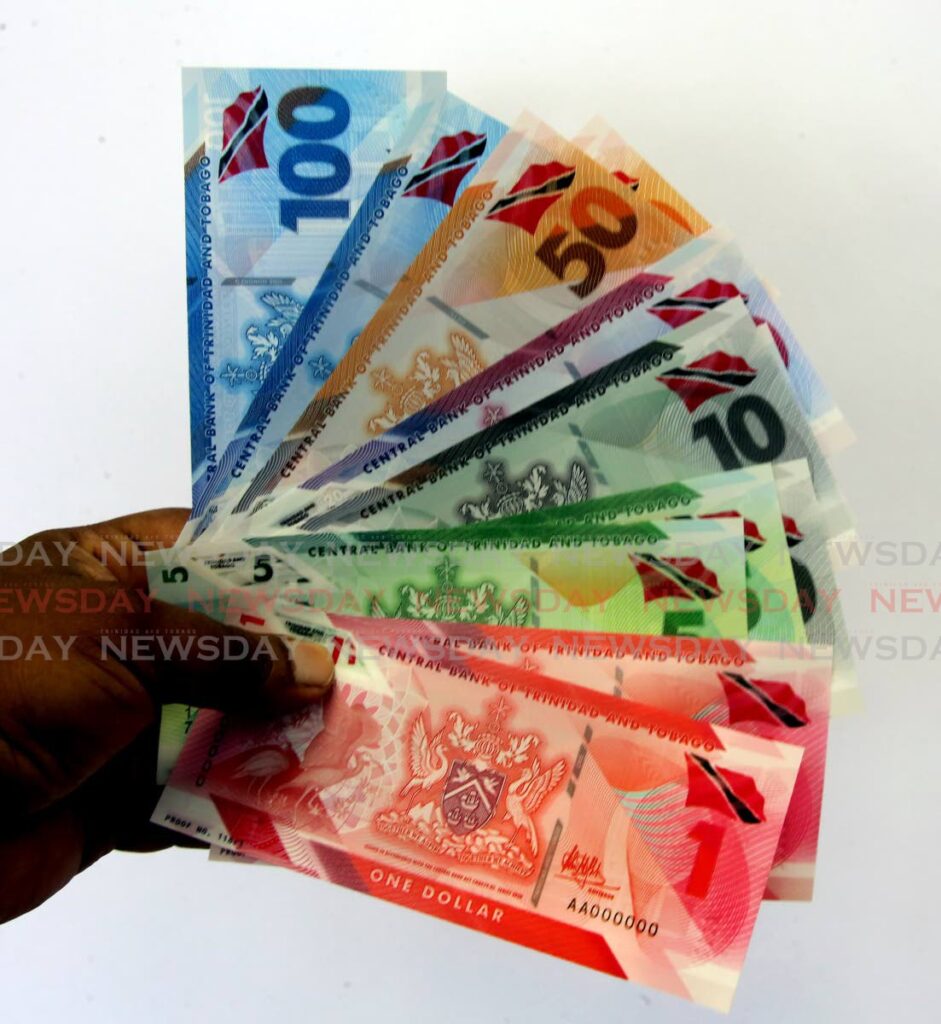Business chambers want more time to convert 'old money bills'

Several business chambers are calling for an extension of the demonetisation of the $1, $5, $10, $20 and $50 notes issued before 2020.
In June, the Central Bank announced the demonetisation process in which the old notes would cease to be in circulation as a legal tender from January 1, 2022.
Already some businesses and financial institutions have notified customers and the public of their dates to stop accepting the cotton notes. State-owned National Petroleum Marketing Co Ltd (NPMC) advised customers that 'old bills' will not be accepted form December 17," it said in a notice on Tuesday.
Scotiabank on Wednesday reminded its customers that the notes will no longer be accepted at their ATMs by December 1, over the counter by December 17 and at night safes by December 19.
TT Chamber of Industry and Commerce CEO Gabriel Faria told Newsday members hoped the deadline would be pushed to the end of January.
He said, “We have not gotten any significant negative feedback from the business community on the change-over for the other bills except that they would have preferred a later deadline as November/December is a busy time, so ideally end January as the deadline would have been better.”
Referring to the last demonetisation exercise in 2019 of the $100 cotton bills, he said members expressed dissatisfaction with the way it was handled under the guise of dealing with "dirty money", but nothing was put in place to treat with law-abiding citizens fairly. (In July this year, La Romaine pastor Vinworth Dayal was charged for possession of $28 million in $100 cotton bills, as proceeds of criminal acts, which he tried to redeem during demonetisation period in 2019.)
“The feeling is the Government may have used this as an excuse to cheat citizens of the value of money they issued and had an obligation to honour.
“We don’t know of any instances in developed markets where there was such a short timeframe to convert, and the Central Bank was not allowed to put in place some mechanism for people who were out of the country or found bills subsequently to still convert their old $100 bills,” Faria said.
The Supermarket Association (SATT) has advised its members to stop accepting old bills by December 15.

“We have had this experience with the $100 transition which created a lot of anxiety with little to no assurances from Central Bank or the Bankers' Association of TT. Notwithstanding some change in direction from these bodies, we will have to manage our own treatment of the issue,” SATT president Rajiv Diptee said Wednesday.
He added government should consider differing societal circumstances, as the transition period where "literally today for tomorrow" the bills become illegal tender was one where people would rush to the banks.
“What you are depriving customers of now is the ability to spend that money that business owners are looking to attract by putting out deals and bargains but now those same businesses will refuse the notes on the basis they have no guarantee of fidelity at the banks.”
Greater San Fernando Area Chamber of Commerce president Kiran Singh told Newsday members anticipated challenges.
While the notice of demonetisation was given some months ago by the Central Bank, he said polymer bills have been in concurrent circulation with the cotton notes.
“The act of depositing cash leading up to the deadline may pose a challenge for some businesses especially the small traders whose survivability relies heavily on cash transactions of the smaller denominations,” he said. The chamber suggested a two-week extension into the first week of 2022.
Couva/Point Lisas Chamber of Commerce president Mukesh Ramsingh anticipated that closer to the deadline there would be a rush from businesses and the public and asked "people not to panic."
He added it was a good move by the government to make all bills polymer as it would reduce fraud and counterfeiting.
“It is a new form of technology that would be good for the country in a large scheme of advancements," he said.
Some businesses in Tunapuna had already set a cut-off date to receive cotton bills this month, said Melissa Senhouse, president of the Greater Tunapuna Chamber of Industry and Commerce.
She said, “We have no objections at this point. It is our hope the process to change money at the Central Bank after the December 31 deadline would be designed with the customer in mind, to make it as smooth and painless as possible.”
In 2019, the $100 cotton notes were demonetised and that process triggered chaos among the public who were seeking to exchange the bills close to its deadline. Long lines were seen at the Central Bank and commercial banks. That exercise was also carried out in early 2020.
The Central Bank disbursed to banks some $5.4 billion in new polymer notes to be traded in for old $100 banknotes in that demonetisation exercise, the Prime Minister told the House of Representatives in February, last year.
On Wednesday, the Central Bank told Newsday via email that the ongoing process has been smooth.
“We are working closely with the banks to manage the transition. Banks are also encouraging their customers to bring in their cotton notes.
“From January 1, 2022, when the old bills are no longer legal tender, the Central Bank will continue to redeem them at our office. We will also work with those individuals having difficulty in coming to our Port of Spain office to facilitate exchanges.”
The notes redeemed as of September 2021 for each denomination were $1– $70 million, $5 – 46 million, $10 – $50 million, $20 – $107 million and $50 –$67 million.
The Central Bank added, “We anticipate that due to loss or destruction over the years, we will eventually redeem a bit less for each denomination. We also expect that the bank will be issuing less notes over time as people use more electronic transactions.”


Comments
"Business chambers want more time to convert ‘old money bills’"